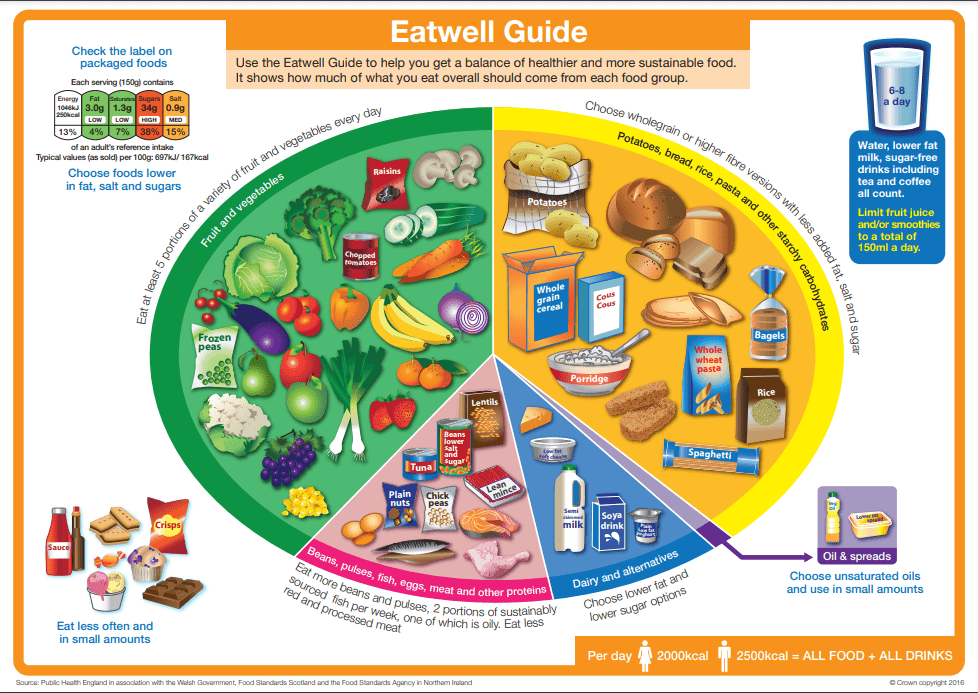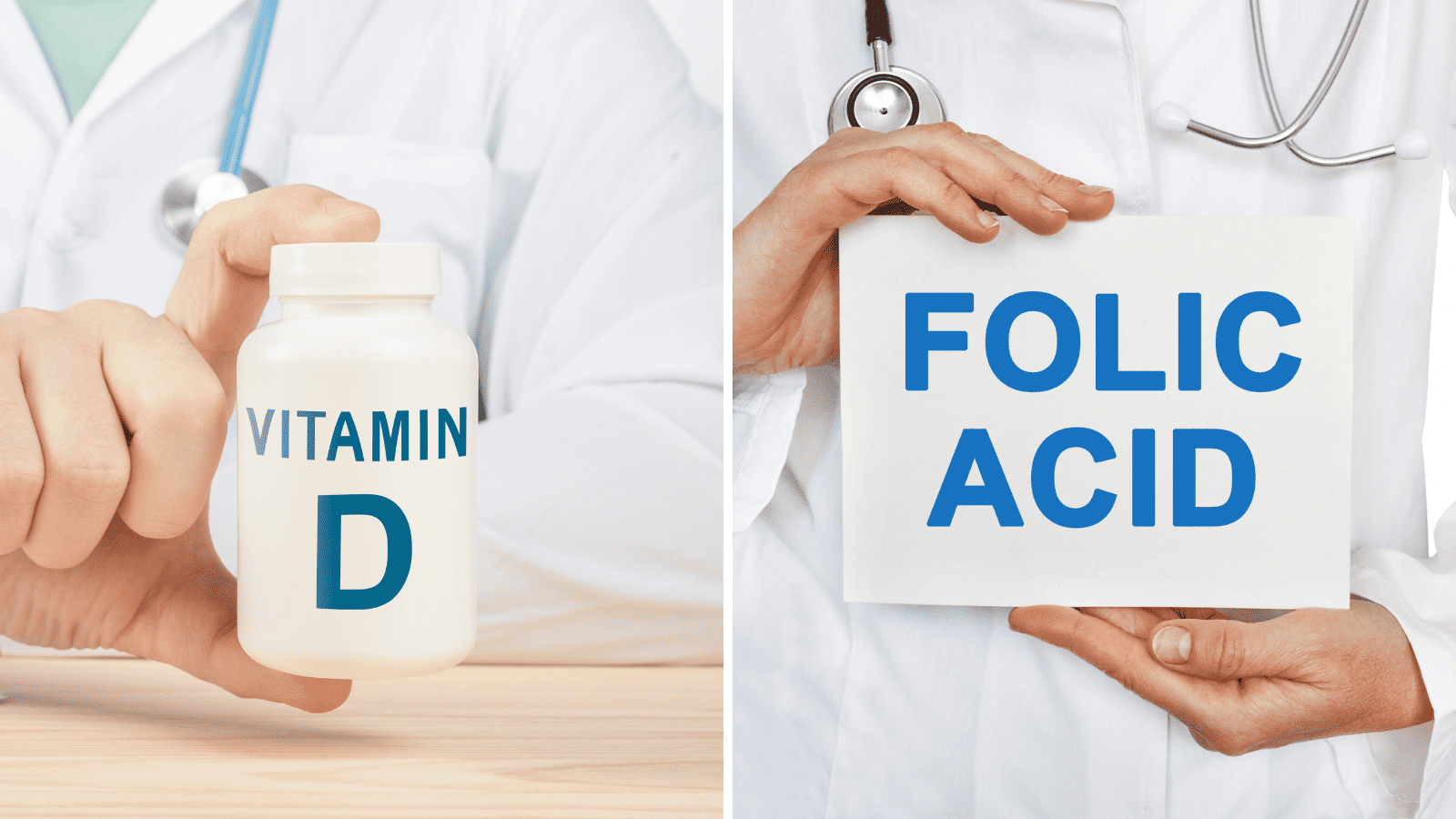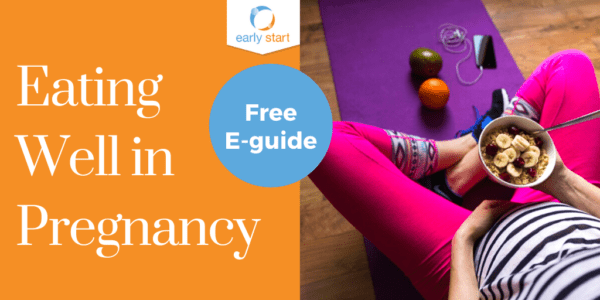We often get asked about nutrition for fertility, so in this blog we’ll take a look at healthy eating to support overall health and well-being.
Can nutrition affect fertility?
There are many factors that can affect your chances of getting pregnant and it’s not just down to food alone. It can be affected by age, lifestyle, the environment and a number of other factors. It can take varying lengths of time to get pregnant. For some women it can take up to a year and for about 1 in 3 women it may happen within a month of trying.
Around 1 in 7 couples (opens in new tab) may have difficulty conceiving. If you are experiencing any difficulties in conceiving it’s always best to speak to your GP for additional advice and guidance. It’s also a good opportunity to talk about your overall health and well-being.
It’s important to remember there are no particular foods that will increase your chances of conceiving. The best advice is to eat a healthy, well-balanced diet, and there are lots of positive steps you and your partner can take for overall health and well-being.
Nutrition and Fertility
The UK’s Eatwell Guide (opens in new tab) is a useful tool to help us consider the balance of foods we should aim to include across the week.

Here are some of our top tips to take away from the Eatwell guide:
- When you can, try to plan your meals and snacks across the week. You can do this by making a list for your weekly shop whether that’s online or a trip to the supermarket.
- Include a variety of foods from each of the four main food groups across the week. This will help to ensure you are getting a balance of nutrients to support your health and well-being
- When choosing starchy foods consider including some wholegrain varieties. Base your meals around starchy foods such as bread, rice, pasta and potatoes.
- Don’t forgot your daily 5 A Day for fruit and vegetables (include 3 vegetables if possible). It’s a good ideas to have something at each of your main meals (breakfast, lunch and tea) and for some of your snacks as well. Why? They are great sources of fibre and important vitamins and minerals.
- Include iron rich foods twice a day for example, at lunch and tea. If you are vegetarian or vegan aim to include an extra portion so you’re having iron rich foods three times a day. You can find out more about iron for vegetarian diets here (opens in new tab). Good sources of iron include: Beans, lentils, red meat, fish and eggs, soya beans and soya products such as tofu.
- Try to have a meat free day once a week. Swapping meat for beans, lentils and nuts is a great way to still get all the protein you need with less calories. You can find out more about the Meat Free Monday campaign here!(opens in new tab)

- Think about your choices of fat in the diet. Healthy fats such as omega-3 fatty acids and monounsaturated fats are food choices in your diet and include foods such as fish, olive oil, nuts, seeds and avocados. These are good choices as they can help to reduce your risk of heart disease.
- Reduce your intake of saturated fat found in meat, butter, cheese, chocolate and biscuits. You don’t need to avoid completely but too much in your diet can increase your risk of heart disease and stroke.
- Think about your drinks. Water is always a great choice to help you stay hydrated. According to the NHS (opens in new tab) there is no evidence to suggest that caffeinated drinks, such as tea, coffee and colas, are associated with fertility problems. However, some studies (opens in new tab) have linked too much caffeine to lowered fertility. Therefore, it’s recommended to reduce your caffeine intake to no more than 200mg per day (e.g. there’s 100mg in a mug of instant coffee and 40mg in a can of cola). It’s a good idea to reduce your intake of sugary drinks like cola to achieve a healthy weight.

Other considerations
As we’ve discussed, there’s no one factor that will affect your fertility and it’s best to consider your overall health and wellbeing. This will support your during pregnancy and in developing lifelong habits.
It’s a good idea for men to consider their food choices too, as eating a balanced diet and maintaining a healthy weight is essential for keeping sperm in good condition. So all the points above are relevant for men too.
Mind the alcohol
The Chief Medical Officers’ alcohol unit guidelines (opens in new tab) does not have specific advice on the effects of alcohol on fertility. But they do have specific guidelines (opens in new tab) for those trying to conceive. It’s recommended that women trying to have a baby or pregnant women, should not drink alcohol at all to keep health risks to the baby as low as possible. Drinking excessively can affect the quality of sperm.

Do I need a supplement?
If you are trying to get pregnant, eating a healthy, varied diet will help you to get most of the vitamins and minerals you need. There are however two important nutrients that we can’t get enough of from the diet alone and which are recommended to take:
- Folic Acid
- Vitamin D
You can read more about supplement requirements here. (opens in new tab)

Exercise
There are lots of benefits to being active and moving more.
Benefits include lower risk of developing long-term health conditions such as heart disease. It can also boost your self-esteem, mood, sleep quality and energy.
It’s recommended that adults aim to be active every day for at least 150 minutes over a week (opens in new tab), through a variety of activities.
Find an activity your enjoy and plan it into your weekly routine.

We hope this blog provides you with some reassurance and ideas for looking after your health and well-being.
For more information on how to eat well if planning a pregnancy, during pregnancy and postnatally, sign up to our FREE e-guide here (opens in new tab).

